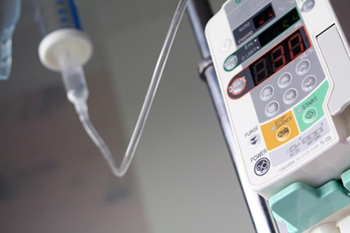Top 10 Health Technology Hazards
 PLYMOUTH MEETING, Pa. — Hazards caused by medical technology are far too common in hospitals, according to ECRI Institute, a 45-year-old nonprofit organization based in Plymouth Meeting that applies scientific, evidence-based research to analyze the health care industry.
PLYMOUTH MEETING, Pa. — Hazards caused by medical technology are far too common in hospitals, according to ECRI Institute, a 45-year-old nonprofit organization based in Plymouth Meeting that applies scientific, evidence-based research to analyze the health care industry.
To help hospitals reduce technology-related risks, the institute publishes an annual list, Top 10 Health Technology Hazards. The 2015 list highlights 10 safety topics that the institute labels as crucial for hospitals to address in the coming year.
The published list is available for a free download at ecri.org. The list goes into detail about the following hazards:
• Alarm hazards: Inadequate alarm configuration polices and practices
• Data integrity: Incorrect or missing data in electronic health records and other health IT systems
• Mix-up of IV lines leading to misadministration of drugs and solutions
• Inadequate reprocessing of endoscopes and surgical instruments
• Ventilator disconnections not caught because of a mistake in setting or missed alarms
• Patient-handling device use errors and device failures
• Dose creep: Unnoticed variations in diagnostic radiation exposures
• Robotic surgery: Complications due to insufficient training
• Cybersecurity: Insufficient protections for medical devices and systems
• Overwhelmed recall and safety alert management programs
“Technology safety can often be overlooked,” said James P. Keller, Jr., vice president, health technology evaluation and safety, ECRI Institute, in a statement. “Based on our experience, there are serious safety problems that need to be addressed. ECRI Institute recommends that hospitals use our list as a guide to help prioritize their technology-related safety initiatives.”
Each hazard in the list includes an overview of the issue and recommended action steps to aid health care facilities in their efforts to maintain a safe environment for patients and health care workers.
For the fourth year in a row, clinical alarm hazards are at the top of ECRI’s list. This year, a report that describes hazards on the list draws particular attention to alarm configuration practices. ECRI Institute points to several deaths and other cases of severe patient harm that may have been prevented with more effective alarm policies and practices.
Recall management, which appears on the list for the first time, highlights overwhelmed recall and safety-alert programs as a potential for serious consequences for healthcare facilities and patients. Experts at ECRI are concerned that existing hospital recall tracking programs are not keeping pace with the growing number of medical device recalls issued each year. FDA reports that the annual number of medical device recalls nearly doubled between 2003 and 2012, from 604 recalls to 1,190 annually.
For each topic, ECRI Institute describes the hazard, presents recommendations for minimizing the risks and lists resources that readers can access to learn more about the topic.
To develop the annual list, ECRI Institute looked to a staff of engineers, scientists, nurses, physicians and patient safety analysts. The team of experts used resources at ECRI, as well as expertise and insight gained through testing and analyzing health care technologies. This process included examining health technology-related problem reports from hospitals and health systems and reports received through the ECRI Institute Patient Safety Organization.
